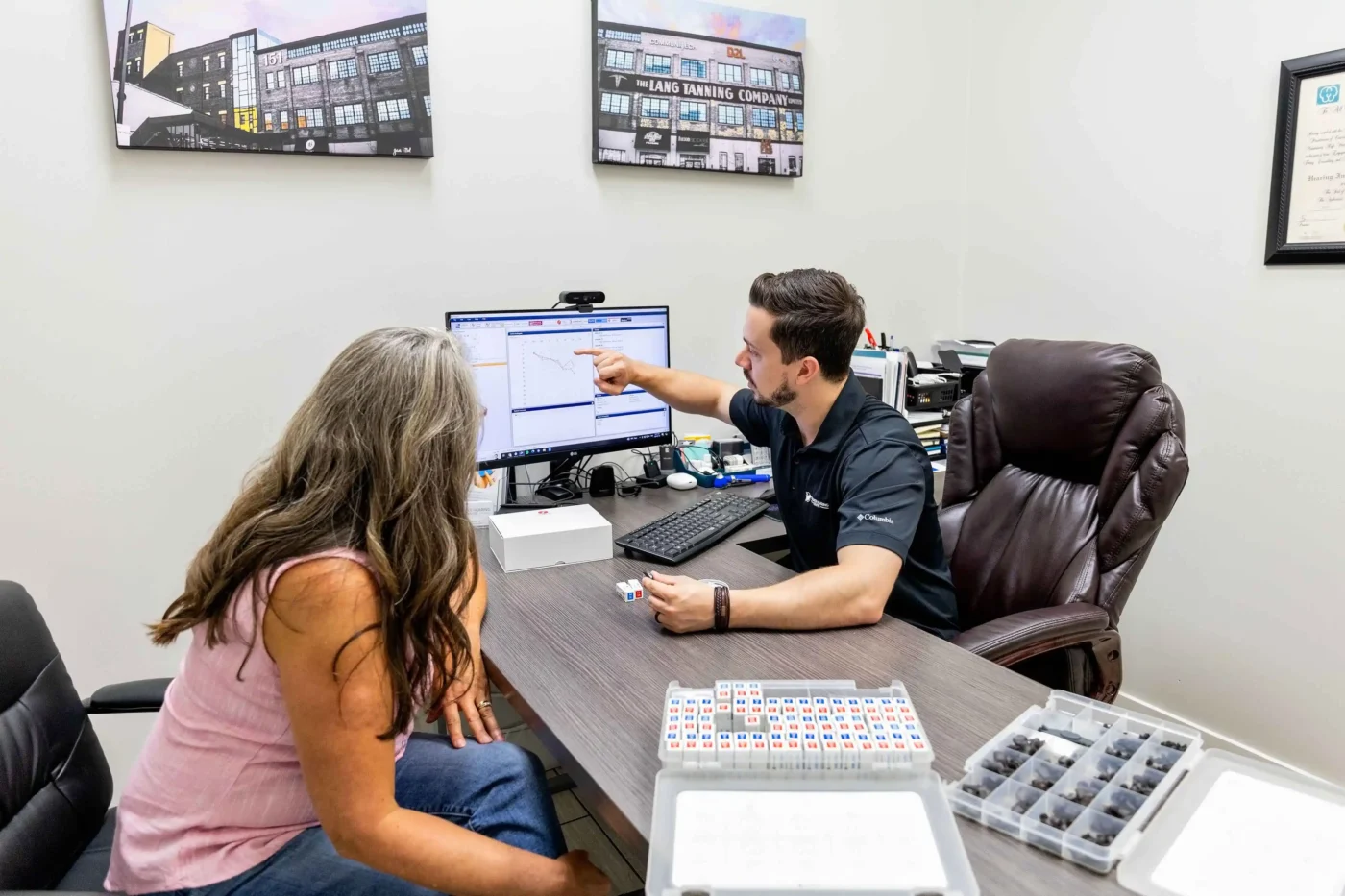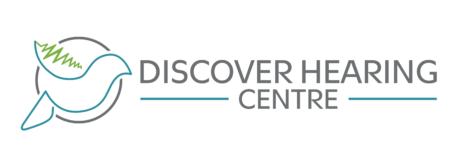Could Your Hearing Loss Contribute to Dementia? Signs to Watch

Just as global life expectancy rises, so do age-related health conditions, with dementia as one of the main ailments. Dementia, a condition that is characterized by cognitive decline interfering with daily life, is distressing both for individuals and families and healthcare systems. Recent research has shown that one of the contributing factors is hearing loss.
In this article, we will examine the connection between hearing loss and dementia, look at signs to watch for and strategies to manage this challenge.
Understanding Hearing Loss
Types of Hearing Loss
Hearing loss is a condition that affects millions of people worldwide and can be categorized into three main types:
- Sensorineural Hearing Loss: This is the most common form and is often associated with aging. It occurs when there is damage to the inner ear or the auditory nerve. This type is usually permanent and can range from mild to severe.
- Conductive Hearing Loss: This occurs when sound waves are not effectively conducted through the outer ear canal to the eardrum and the tiny bones (ossicles) of the middle ear. Causes include ear infections, fluid in the ear, or earwax buildup. Unlike sensorineural hearing loss, conductive hearing loss can often be treated or improved.
- Mixed Hearing Loss: This type involves issues in both the inner ear and the outer or middle ear, and it is a combination of sensorineural and conductive hearing loss.
Prevalence
Hearing loss is a very widespread issue, particularly prevalent among older adults. According to the World Health Organization (WHO), approximately 1.5 billion people live with some degree of hearing loss. In older adults, the prevalence is even higher, with nearly one-third of people aged 65 and older experiencing hearing impairment. As the population continues to age, these numbers are expected to rise, making hearing loss an increasingly pressing public health issue.
Causes of Hearing Loss
There are many factors that can contribute to hearing loss, including:
- Age-Related Hearing Loss (Presbycusis): This gradual decline in hearing ability is a natural part of aging and is most commonly observed in individuals over 60.
- Noise Exposure: Prolonged exposure to loud noise, whether occupational or recreational, can damage the delicate hair cells in the inner ear, leading to permanent hearing loss.
- Genetic Factors: Some individuals are genetically predisposed to hearing loss, either from birth or as they age.
- Medical Conditions: Certain illnesses, such as diabetes and cardiovascular disease, can also contribute to hearing impairment by affecting blood flow to the ears.
The Connection Between Hearing Loss and Dementia
Scientific Research
In recent years, multiple studies have found links between hearing loss and dementia. They have shown that people with hearing loss are at an increased risk of developing dementia compared to those with normal hearing. One study highlighted hearing loss as one of the 12 modifiable risk factors for dementia, suggesting that addressing hearing loss could potentially delay or prevent the onset of cognitive decline.
Possible Mechanisms
There are several hypotheses that have been fielded to explain how hearing loss may contribute to cognitive decline:
- Cognitive Load Hypothesis: This theory suggests that the brain must work harder to decode and process sounds as hearing declines. This increased cognitive effort can strain the brain’s resources, potentially leading to cognitive decline over time.
- Social Isolation: Hearing loss often leads to difficulties in communication, which can cause individuals to withdraw from social activities. Social isolation is a known risk factor for dementia, as it reduces cognitive stimulation and can accelerate cognitive decline.
- Brain Structure Changes: Research indicates that hearing loss may cause changes in the brain structure, particularly in areas responsible for processing sound and language. These structural changes can contribute to cognitive decline and increase the risk of developing dementia.
Lancet Report Insights
The 2024 Lancet report on dementia prevention, intervention, and care also mentions hearing loss as a modifiable risk factor. The report shows that an increase in hearing loss is associated with an exponential increase in dementia risk. This highlights that early detection and intervention against hearing loss can preserve both hearing and cognitive health.
Signs That Hearing Loss May Be Affecting Cognitive Health
Early Warning Signs
Sometimes, it can be challenging to tell apart early signs of hearing loss and cognitive decline, as the symptoms often overlap. However, there are some indicators that may connect hearing loss with cognitive issues:
- Increased Forgetfulness: Difficulty remembering conversations or frequently asking others to repeat themselves is one of the most common early signs of both hearing loss and cognitive decline.
- Difficulty Following Conversations: Another common sign of hearing loss is increased difficulty in keeping up with conversations, especially in noisy environments. When this extends to difficulty understanding speech, it could also indicate cognitive issues.
Behavioral Changes
There are also some behavioral changes that could signal hearing loss and cognitive issues:
- Social Withdrawal: People with hearing loss may start to avoid social situations, which can lead to increased isolation. This withdrawal can increase the risk of cognitive decline and is an essential behavioral sign to watch out for.
- Irritability or Depression: In some cases, the frustration of experiencing difficulty hearing and communicating can lead to irritability, anxiety, or depression, all of which are also associated with both hearing loss and cognitive decline.
When to Seek Help
If you or a loved one are experiencing any of these signs, it is crucial to consult a healthcare provider as soon as possible. A hearing test can help determine the extent of hearing loss, while a cognitive evaluation can assess any potential decline in mental sharpness. Early intervention is vital to managing both conditions effectively.
Prevention and Management
Addressing Hearing Loss Early
Many people don’t realize or acknowledge they are suffering from hearing loss until it has become an issue in daily life. Early diagnosis and treatment are critical, as addressing hearing loss early can reduce the risk of severely impacting daily life and cognitive decline. Hearing aids amplify sound, making hearing and understanding speech easier. Studies have shown that people using hearing aids are less likely to experience cognitive decline than those without.
Hearing Aids and Cognitive Health
Using hearing aids can significantly boost cognitive health. Research shows that hearing aids can improve speech comprehension and reduce the cognitive load on the brain, allowing it to function more efficiently. The reduced strain may also help slow the progression of cognitive decline in individuals with hearing loss.
Lifestyle Modifications
On top of treating hearing loss, some lifestyle changes can also help maintain cognitive health:
- Stay Socially Active: Regular social activities can stimulate the brain and reduce the risk of cognitive decline.
- Manage Cardiovascular Health: Conditions such as high blood pressure and diabetes can contribute to both hearing loss and cognitive decline. Managing these conditions is essential for overall brain health.
- Mentally Stimulating Activities: Engage in activities that challenge the brain, such as puzzles, reading, and learning new skills. This stimulation can help maintain mental sharpness and reduce the risk of dementia.
Don’t Let Hearing Loss Impact Your Life
Hearing loss is more than just an inconvenience; it can have far-reaching effects on your cognitive health and overall well-being. The numerous links between hearing loss and dementia clearly underline how important it is to address hearing loss early and effectively. Taking proactive steps to protect your hearing can be a major contributor to maintaining your cognitive health and significantly reducing the risk of dementia.
Visit our hearing clinic in Kitchener and schedule a hearing test with our professional experts. We offer comprehensive audiology services, from hearing tests and education to digital hearing aids and personalized hearing loss treatments that put you and your specific hearing health needs at the centre. Whether you need a hearing test, are looking for invisible hearing aids or require help with hearing aid fittings and programming, Discover Hearing Centre is here for you.
Discover Hearing Centre is a local clinic specializing in the treatment of hearing loss; we’ve worked with hundreds of patients to help them maintain independence. Whether you’re experiencing hearing loss or tinnitus, we’re dedicated to improving your quality of life through better hearing. When you choose us, you choose a team committed to your well-being.
Call us today at 519-208-4327 or fill out our convenient online form to learn more about how we can help you with hearing loss issues.
You Might Also Like
Top 4 Major Causes of Hearing Loss
What Is Tinnitus? Causes, Symptoms, and Treatment Options
Does Tinnitus Get Worse With Age?
Have Questions?
Call our office if you have any questions about your hearing loss or anything else related to hearing. We are happy to help and answer any questions you may have.





